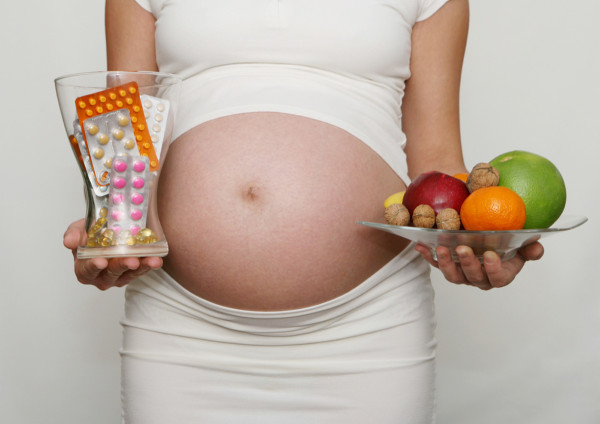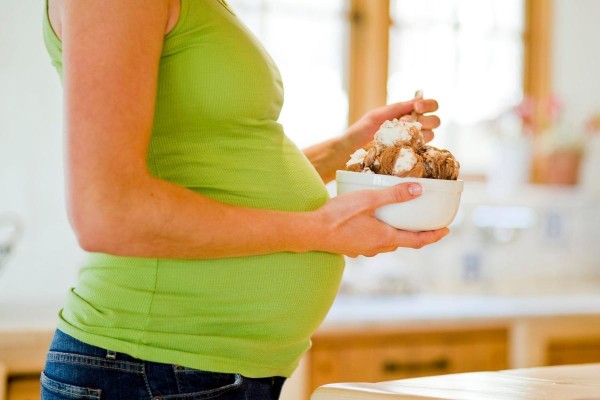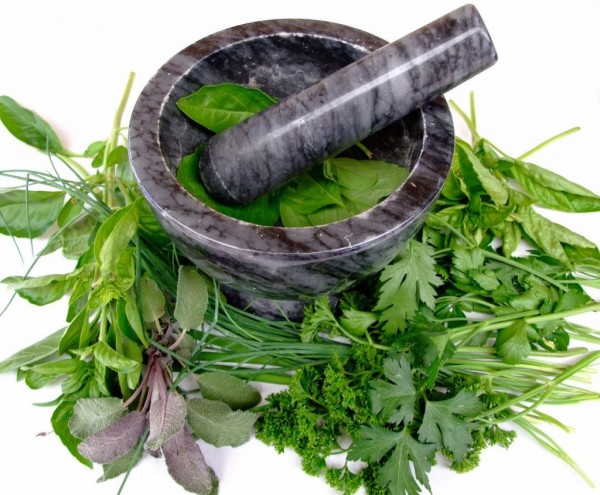What to do with bloating during pregnancy
From the first weeks of pregnancy, the mood of most women is clouded by a number of problems associated with the birth of a new life. Most often it is nausea, dizziness, drowsiness, fatigue, heartburn and bloating. The feeling of heaviness in the stomach and the accumulation of gas bring discomfort, but before tackling their elimination, it is necessary to find out what are their causes.
Content
Causes of bloating during pregnancy
The appearance of flatulence and bloating, as a rule, provokes a rapidly growing fetus, because as a result of this there is an active pressure of the uterus on the intestines, especially in the 2nd and 3rd trimester of pregnancy.
Other causes of bloating during pregnancy:
- If the future mommy even before the onset pregnancy faced with diseases associated with the gastrointestinal tract, it is guaranteed that they will make themselves felt already in the 1st trimester.
- Feeling of "fullness", nausea, diarrhea, belching may appear due to insufficient production of enzymes, which disrupts the work of the pancreas.
- The situation is aggravated if the expectant mother eats incorrectly, abuses the so-called fast carbohydrates.
- Chronic stress, tight clothing, insufficient intake of clean drinking water and unfavorable environmental conditions are also adverse factors.

Early bloating
The tummy is not even noticeable to others, but are you already worried about bloating and constant discharge of gases? This may well happen, especially if even before the onset pregnancy the woman was diagnosed with problems associated with the work of the gastrointestinal tract. During the period of carrying a baby, all chronic ailments are exacerbated, and even those who have never encountered the problem of bloating and flatulence.
Disorders of the stomach and intestines, flatulence at the very beginning of the emergence of a new life is also due to intense hormonal changes that occur in the body of the expectant mother. Already in the first weeks of gestation, the level of the hormone progesterone rises sharply in a woman's blood, which contributes to a decrease in the tone of smooth muscles of all organs, including the intestines - it simply ceases to cope with its tasks, digestion becomes difficult, gas accumulates, heartburn and heaviness appear.
What to do with bloating 
During the period of gestation, a woman's body is subjected to an enormous load, therefore it is so important to protect yourself from all kinds of malfunctions and failures, including those associated with disruption of the digestive tract. Flatulence and bloating, it would seem, are not serious problems, however, and they can provoke a threat to the health of the mother and child, because as a result of strong intestinal pressure on the uterus, premature birth can occur, and all kinds of digestive problems interfere with the intake of vitamins and minerals, so necessary for correct child development.
If bloating and flatulence causes discomfort, first of all, contact your doctor who will conduct the necessary tests, studies, methods of eliminating increased gas formation directly depend on the reasons for its occurrence, you should not self-medicate.
To get started, try basic methods that will help get rid of bloating and gas in the intestines - this is following the rules of proper nutrition, walking in the fresh air, gentle physical exercises for pregnant women, adherence to a drinking regimen. If these methods are not effective, a specialist can prescribe medications, as a rule, such medications cannot harm the health of the mother and the baby.
- Espumisan or Bobotik is indicated even for colic in newborns, the correct dosage contributes to the "collapse" of gas bubbles in the intestine, while not being absorbed into the blood.
- Enterosgel has a wide spectrum of action, effectively removing toxins, putrefaction products from the body, it is indicated for diarrhea, food poisoning, flatulence, bloating, etc.
- Creon, Pancreatin or Mezim contains enzymes and promotes proper absorption of food.
- Hilak forte and Baktistatin are prebiotics, they normalize bowel function and have a beneficial effect on increasing immunity.
- Iberogast is a herbal preparation, often doctors prefer it.
There are also a lot of folk methods tested by many women, however, any home remedies for bloating and flatulence should be taken under the strict supervision of a gynecologist. 
The most popular herbal remedies:
- First, try the simplest method - chamomile decoction. Pharmacy chamomile must be boiled, filtered and insisted for a couple of hours, drink two teaspoons 3-4 times a day before meals.
- An equally common way against colic and flatulence in babies and pregnant women is the so-called dill water. It is made from infused dill seeds, and the seeds can also be chewed and added to your favorite dishes and salads.
- In case of exacerbations, a mixture of ginger powder and lemon juice (about 5 g) is recommended, they are mixed, a pinch of salt is added and taken half an hour before meals.
- As practice shows, a special carminative collection from a mixture of anise, fennel, caraway and mint is effective.
Those who have already encountered colic in babies are well aware that the simplest way can be a gentle clockwise massage of the abdomen and applying a warm diaper. For a while, the effect can indeed be positive.
Do not forget that pregnancy- not a disease, if there are no corresponding contraindications and threats of interruption, you can and should take a walk in the fresh air, visit the pool, do special exercises and sign up for yoga for pregnant women. 
Eating the right diet - how to prevent bloating
Of course, any health problem is easier to prevent than to cure. The first and most important preventive measure for bloating is proper nutrition:
- Some dishes should be cut down, others should be eliminated. First of all, this applies to products that provoke the accumulation of a large amount of gases - legumes, cabbage, sauerkraut, sweets.
- Meals should be regular and fractional - 5-6 times a day, food should be chewed thoroughly.
- Observe the drinking regime, you should not drink food, but to prevent constipation, you must drink at least two liters of purified water. It will be harmless to use weak tea, compote, but from carbonated drinks and coffee better to refuse. Be sure to include kefir, fermented baked milk and other fermented milk drinks in the diet, which contribute to the normalization of the digestive tract.


